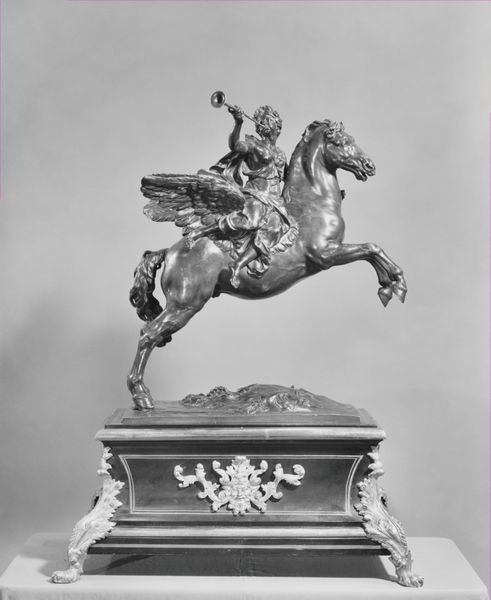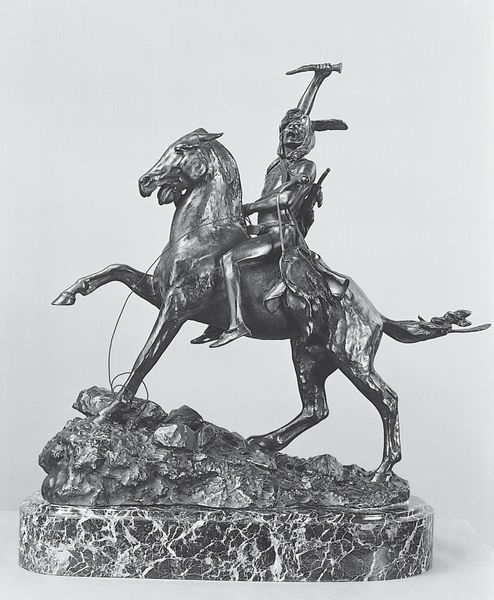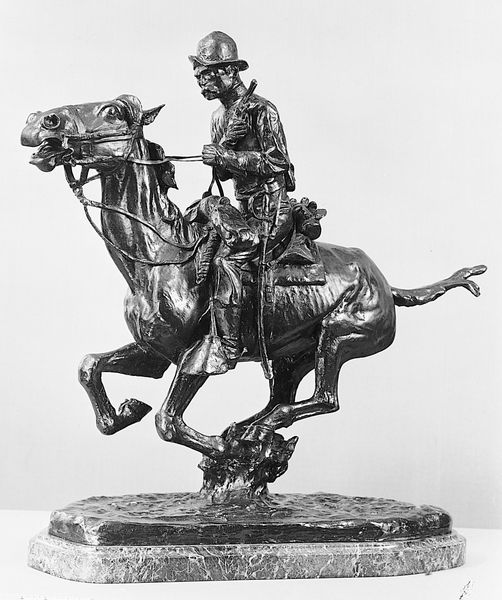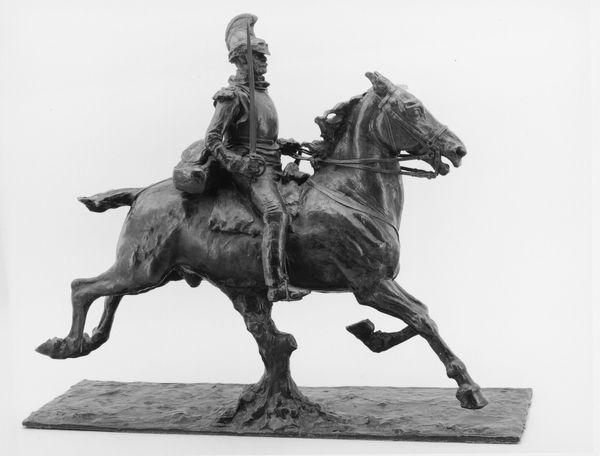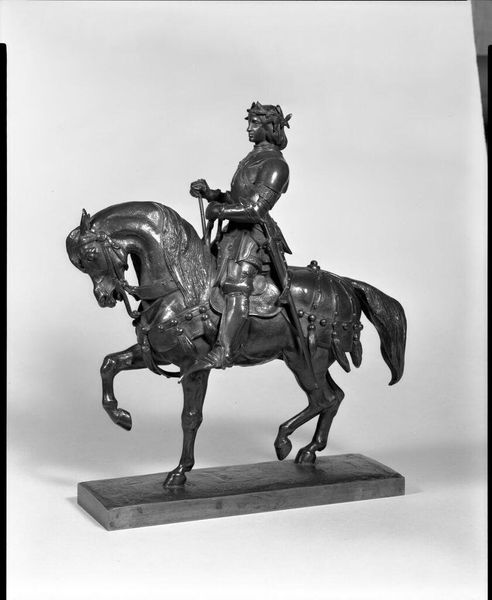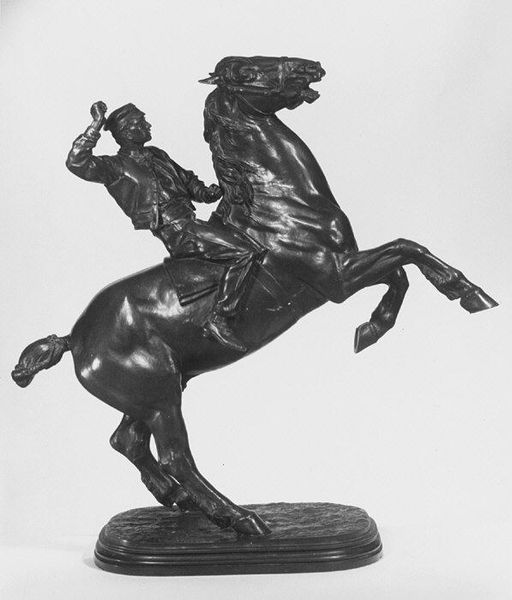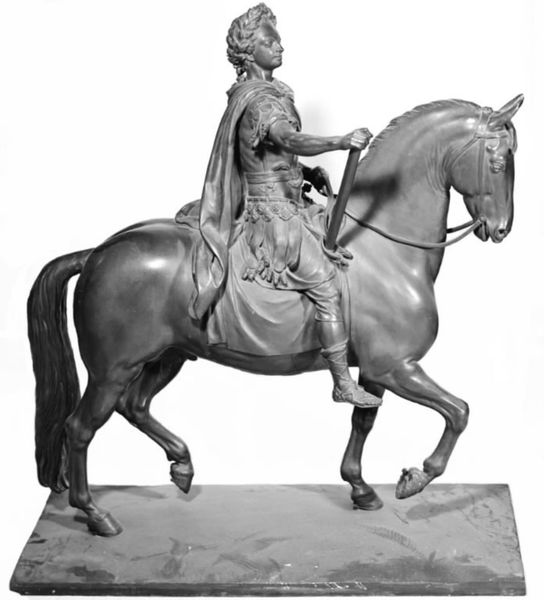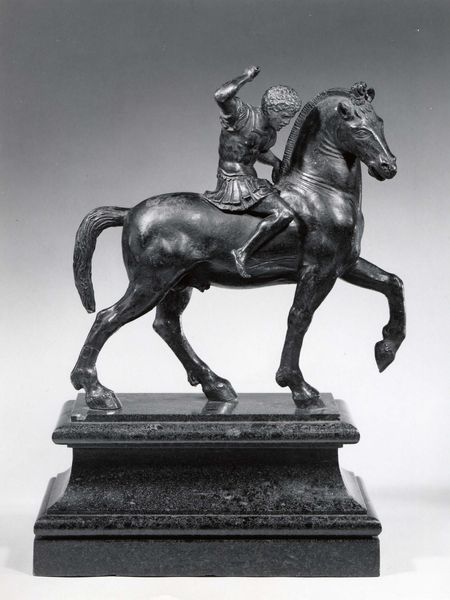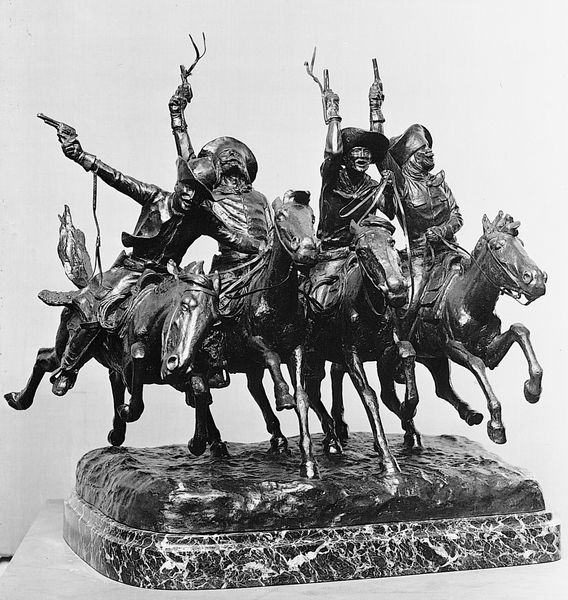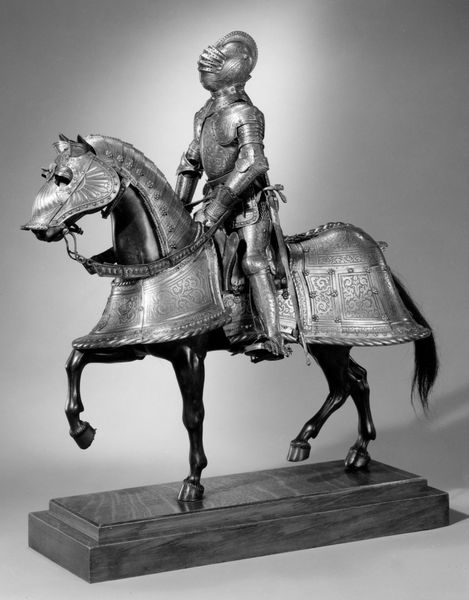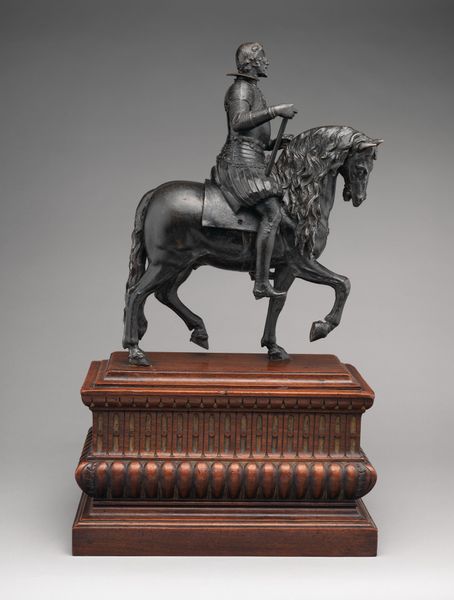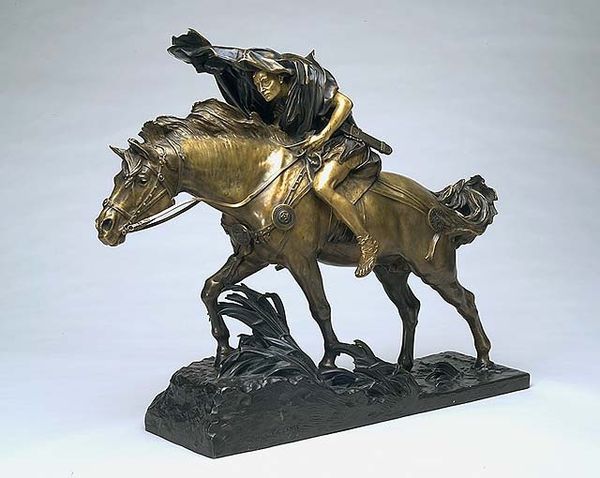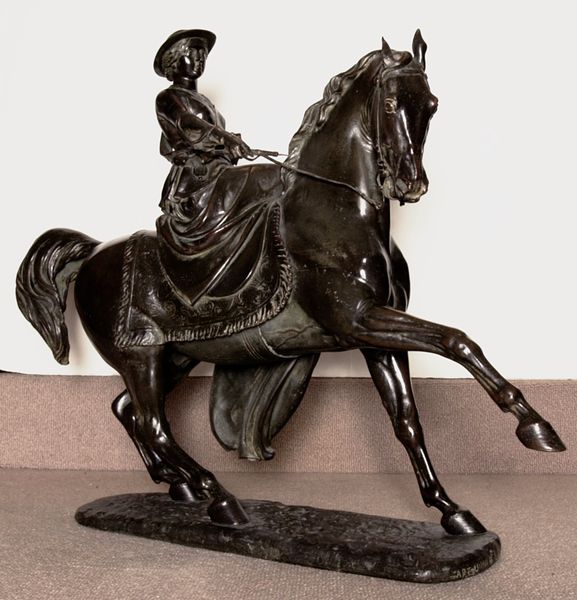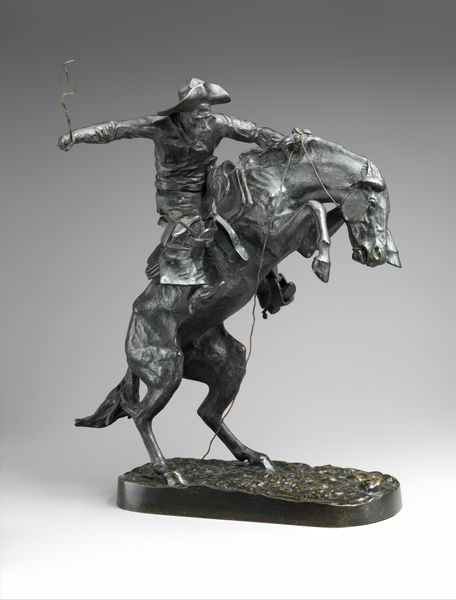
bronze, sculpture
#
allegory
#
baroque
#
sculpture
#
classical-realism
#
bronze
#
figuration
#
sculpture
#
decorative-art
Dimensions: Height: 25 3/16 in. (64 cm)
Copyright: Public Domain
Editor: Here we have Antoine Coysevox's bronze sculpture, "Mercury," crafted between 1700 and 1715. It's wonderfully dynamic. How do you interpret this work, particularly given its allegorical nature? Curator: I see here the culmination of centuries of mythic understanding, channeled through the Baroque aesthetic. Mercury, fleet of foot and mind, messenger of the gods. His image evokes communication, but also a certain trickery and shrewdness. The winged horse adds a layer of complexity, almost diluting Mercury's role and importance. Do you find any contradiction or reinforcement in that combination? Editor: I see reinforcement. The winged horse emphasizes speed, amplifying Mercury’s traditional role as a swift messenger. But do you think that the choice of bronze affects how we perceive this image and its emotional weight? Curator: Undoubtedly. Bronze provides a certain gravitas, a link to ancient precedents, echoing the grand narratives of classical sculpture. It also speaks to the aspirations of the era, striving to recapture the glory of antiquity. Think about the tactile associations - coolness, permanence – qualities that resonate with the enduring nature of myth itself. Mercury is no longer just a story; it is immortalized as art, and by proxy we share immortality with the icon. What strikes you most about the relationship between subject matter and material? Editor: It's the contrast. Mercury represents swiftness, lightness, even airiness, yet he’s rendered in a weighty, grounded material. The tension there is compelling! It makes you consider how the past is always with us, even in moments of progress or change. Curator: Precisely! A beautiful reminder of the past made manifest by memory. Editor: It’s a striking visualization. I hadn't thought about memory quite that way. Curator: This sculpture now lives in our collective cultural memory.
Comments
No comments
Be the first to comment and join the conversation on the ultimate creative platform.
